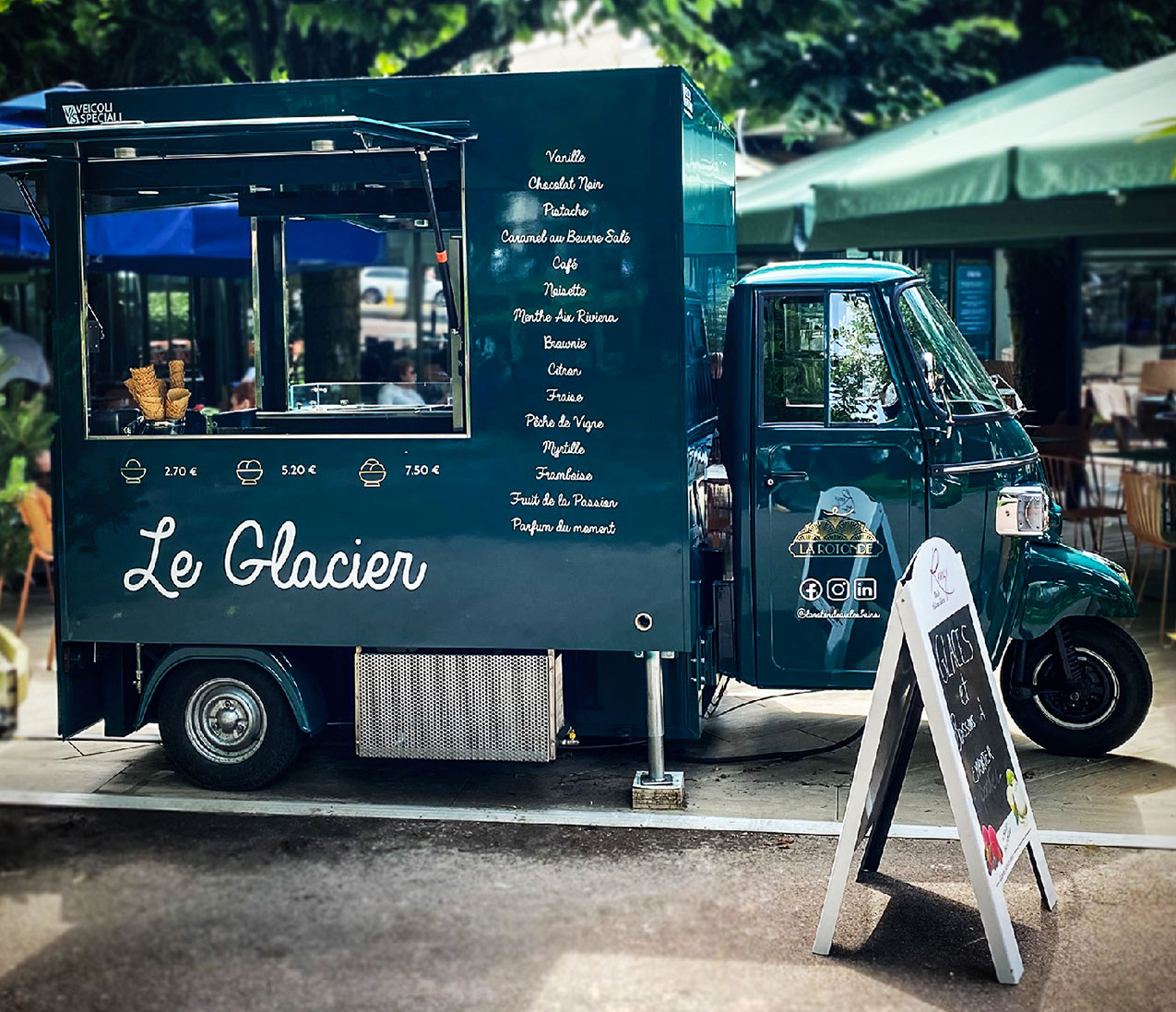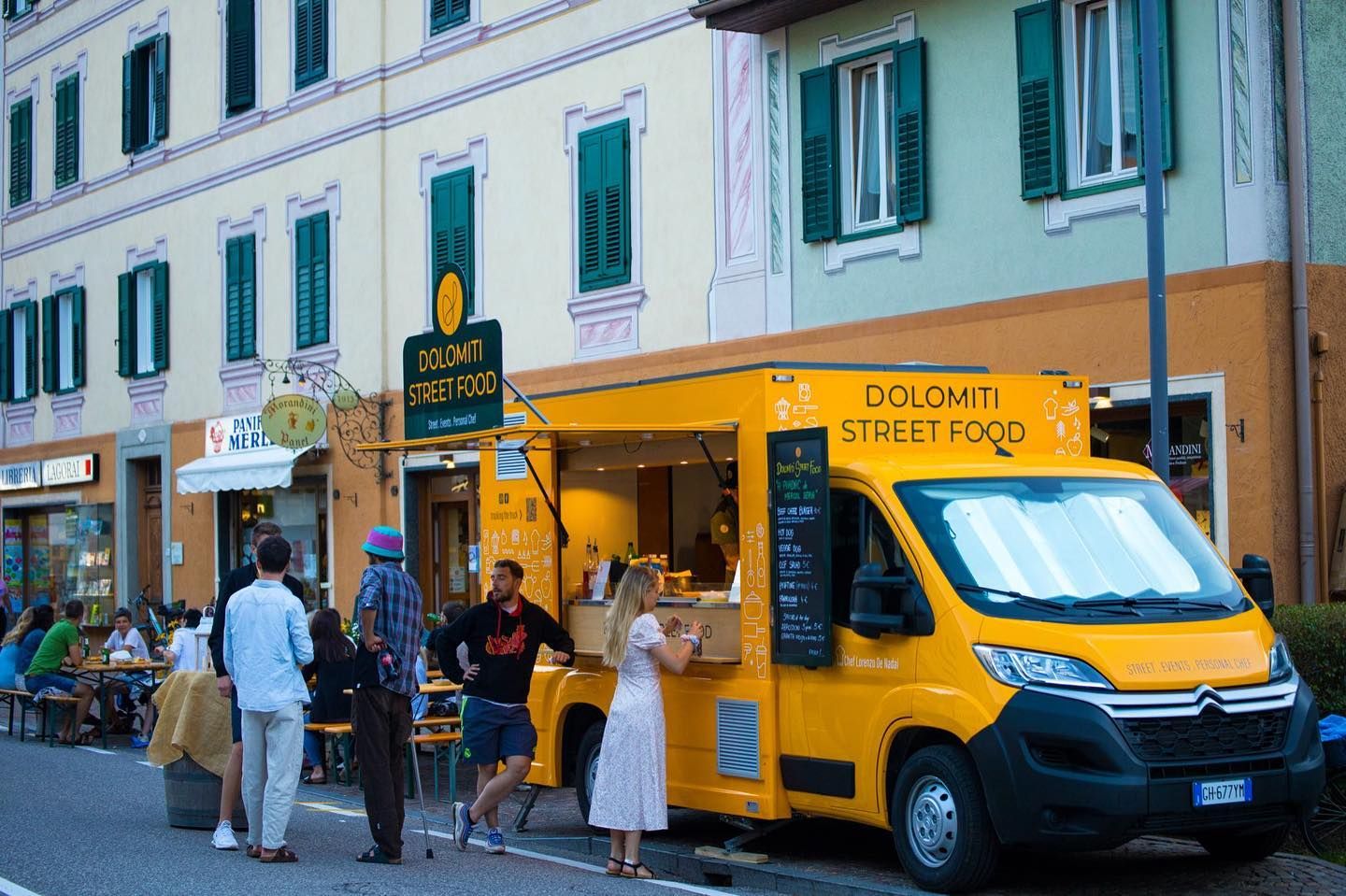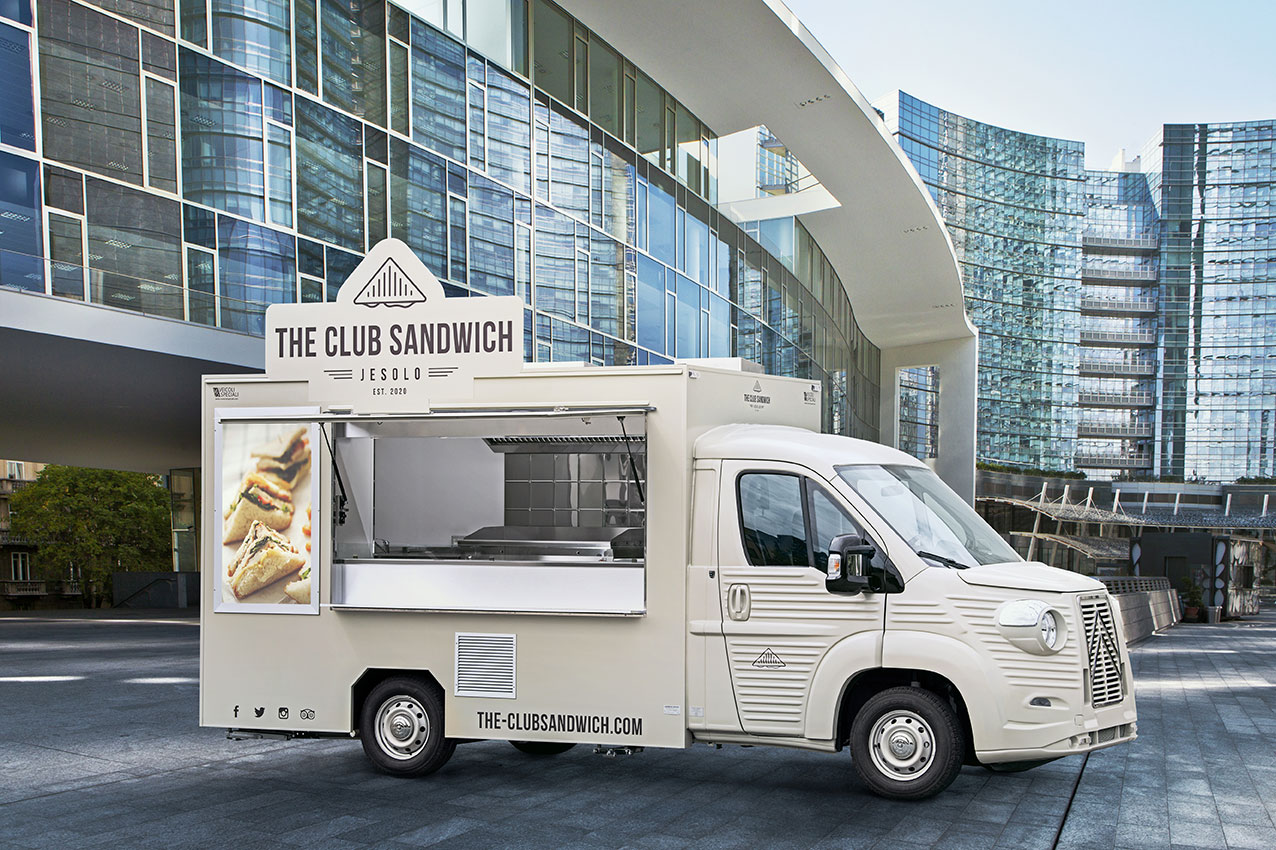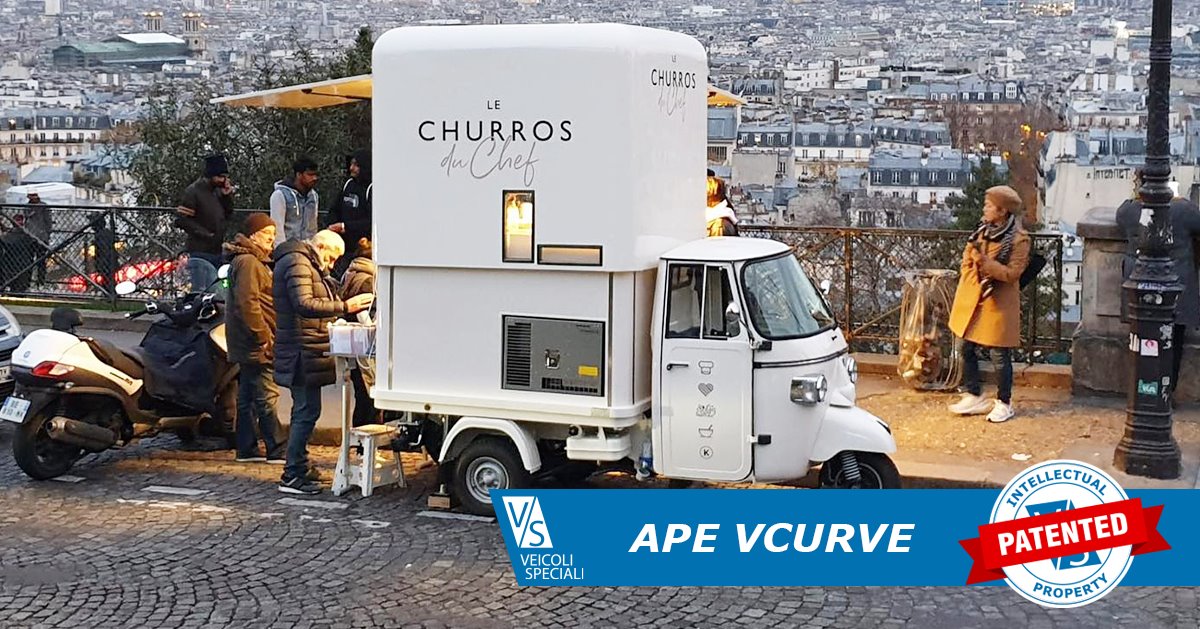The culture of street food and mobile catering is not just a temporary culinary trend, but a revolution that is redefining the way we relate to food and mealtime.
In the throbbing heart of modern cities, amidst the constant hustle and bustle of people, lies a golden opportunity for entrepreneurs who can spot new trends and ride them
Food trucks are the tools to do it successfully.
This GUIDE is designed for those who intend to buy a food truck (or a fleet of food trucks) to expand their business or start one from scratch.
In five points, it offers an overview of the advantages and prospects that open up for those entering the street food business.
Whether starting with previous experience in the catering industry or debuting in street food without ever having managed a fixed location, this guide will provide numerous points for reflection and, hopefully, moments of inspiration.
1. The Rise of Food Trucks: Why Now is the Right Time
2. Advantages of the Mobile Food Business: Street Food vs Traditional Venues
3. Menu Selection: Product Quality and Strategies to Stand Out
4. Overcoming Challenges: Licenses, Regulations, and Location
5. The Importance of the Food Truck: For Profits and Working Better
1. The Rise of Food Trucks: Why Now is the Right Time
Market research in all countries around the world shows a growing trend for the coming years, even after the setback caused by the Covid epidemic.
The food truck industry is in constant growth because the demand for street food continues to increase, influenced by various factors:
- Globally, interest in food and cooking is on the rise, as demonstrated by the countless television programs on this subject;
- Consumers are increasingly curious to try new foods and variations of known dishes;
- Culinary art is booming, chefs are the stars of our time, and word of mouth is an ally for those who can surprise their customers’ palates;
- Urbanization, commerce, and increased interactions encourage people to move around and the habit of eating out.
The evolution of consumer habits has created fertile ground for mobile catering, making investments in street food promising.
New demands for environmental sustainability and a spreading sensitivity offer a competitive advantage to those who purchase eco-friendly food trucks, compared to those working in the sector with older and more polluting vehicles.
A new high-end food truck can be energy independent, easy to move, place, and connect to power.
Furthermore, it allows the creation of a sales point both outside and inside buildings, without the need for additional cubic space and construction work.
If there has ever been a right time to start a food truck business, it is undoubtedly now.
2. Advantages of the Mobile Food Business: Street Food vs Traditional Venues
Food trucks and traditional venues are not in contradiction; in fact, they complement each other, as they cater to different customer targets.
They can also work together, for example, a food truck can be placed in the garden or courtyard of a restaurant or hotel, offering cocktails and aperitifs, or ice cream and desserts.
Certainly, they can promote each other, increasing brand visibility and recognition.
In all cases, compared to traditional venues, street food is more advantageous for various reasons:
- It reduces the initial investment, since the costs for a venue are significantly higher than those for an equipped vehicle;
- It lowers fixed costs, which are much higher to keep a venue open (fixed expenses, maintenance, staff, etc.);
- It reduces turnover, freeing from the need to continuously search for new staff;
- It ensures higher profit margins, improving the cost-benefit ratio;
- It offers operational flexibility, allowing testing of new markets and locations;
- It allows access to manifestations, festivals, fairs, private and corporate events;
- It offers the opportunity to collaborate with important brands, providing one’s vehicle and services;
- It better intercepts urban tastes and trends, comes from the street, sells better;
- It makes experimenting with new products and menus simpler;
- It improves the relationship with customers, which becomes more direct, dynamic, and youthful.
So many advantages cannot be ignored when choosing the best solution to invest one’s capital.
3. Menu Selection: Product Quality and Strategies to Stand Out
We have already mentioned how consumers are becoming more demanding and sophisticated. This should not be intimidating; rather, it’s a guarantee that quality will be recognized and appreciated.
Therefore, the menu must be high-level, even if it focuses on a single product, this should be unique and distinguishable.
Genuine ingredients and the preparation of dishes respecting the organoleptic properties of the materials make a difference and always find resonance.
But quality alone is not enough; it must be communicated through a multichannel approach, leveraging the food truck’s graphics, accessories (like signs and chalkboards), the internet, social channels, and more traditional ones.
Partnerships with other companies are welcome.
The products sold can be traditional and typical, but also exotic and innovative; the important thing is to know the market you want to access and the type of clientele you aim to reach.
We invite those who are still unclear about what product to sell to discover on our blog:
Knowing the foods of mass culture is a good starting point for identifying your niche.
4. Overcoming Challenges: Licenses, Regulations and Location
One of the most common concerns for food truck buyers is bureaucracy, namely everything related to work permits, sales licenses in potential locations, compliance with health and road regulations, and so on.
Fortunately, in most cases, these obstacles are easy to overcome.
Licenses are freely available in almost all European countries.
Municipalities or regions, depending on the case, provide information on the products that can be sold and the locations available.
Regarding the food truck, there is European legislation that establishes the criteria that manufacturers must follow to obtain approval for the food trucks built. Dimensions, weights, electrical, gas, and water systems, work surfaces, and materials must comply with European regulations: it is the manufacturer’s responsibility to deliver a food truck that is legally compliant.
Another reason to choose a manufacturer of proven reliability.
5. The Importance of the Food Truck: For Profits and Better Work
The food truck serves simultaneously as a means of transportation, a tool, and a workplace, so it is not advisable to choose it with downward compromises.
Saving on the initial investment means increasing maintenance costs later, along with the time and headaches to manage the inefficiencies caused by poor quality outfittings.
From materials to equipment, from the lighting system to the power supply, design and ergonomics, many elements influence the food truck’s reliability and comfort, likewise its price.
Valuing these aspects at the time of purchase ensures that you can work peacefully for many years with a food truck designed to last.
Moreover, experience leads us to formulate some general RECOMMENDATIONS for achieving a food truck suitable for your products and work needs:
- It’s not useful to try to replicate the kitchen of your restaurant or venue on a truck. The spaces, product preparation, storage management, and energy are completely different. A skilled builder knows from experience what is appropriate to facilitate onboard work and can advise or guide towards the best solution case by case;
- The service must be built with street sales in mind, so it’s very important to have a food truck that is comfortable for serving customers, low and with the most used tools within reach;
- Storage and preservation of food are fundamental in a food truck that operates outdoors in all types of weather conditions, with heat, cold, and even extreme humidity. Therefore, saving on refrigerators, which must be efficient in any condition, is a big mistake, as it risks losing the raw materials needed for production;
- The food truck must be easily washable and maintainable, starting with the floors. Stainless steel surfaces are preferable, as they promote hygiene and cleanliness. Easily accessible technical compartments simplify both work and cleaning operations;
- The efficiency and regularity of the systems are of primary importance for the safety of the food truck and to work without interruptions. Saving on the quality of the installations is absolutely to be avoided in order not to be without energy at crucial moments;
- The same goes for all the equipment and gear; the more efficient they are, the more work productivity increases.
If you found this GUIDE useful, share it with your friends. For further information, do not hesitate to contact us. We are at your disposal if you need our advise.












